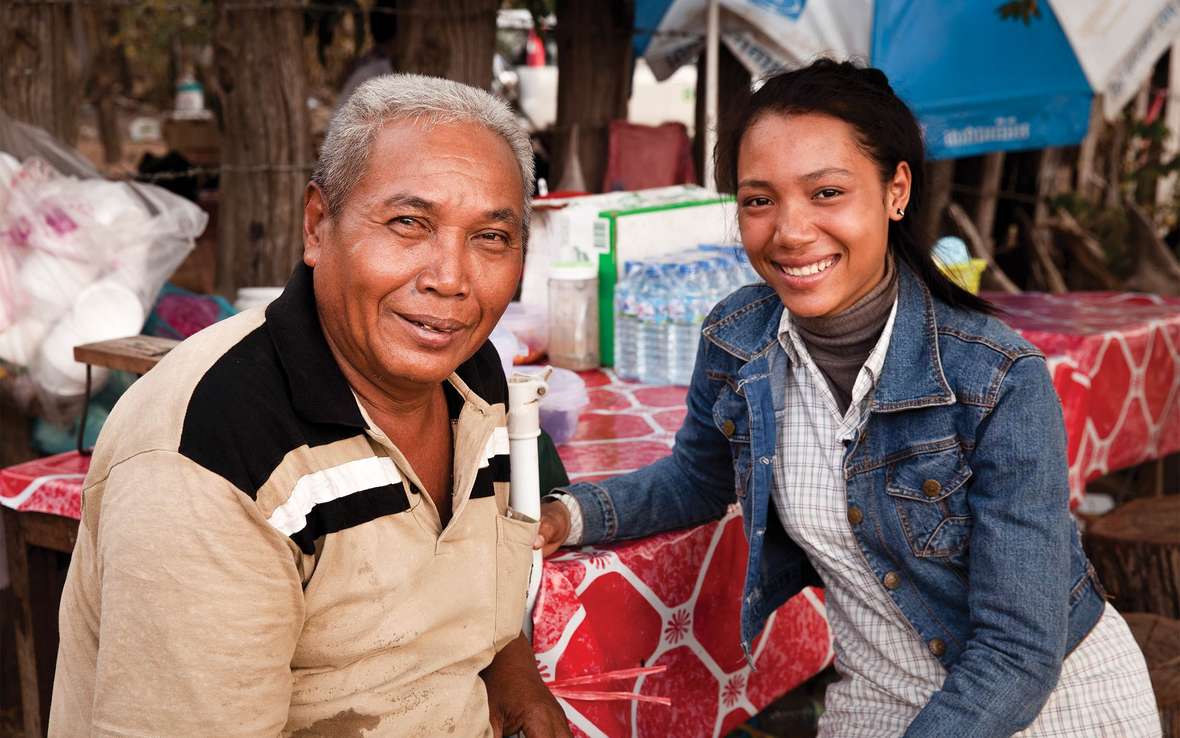Women’s ability to advance depends on their ability to participate fully in the political, social, and economic aspects of their countries and to live without fear of violence. We know that judicious investments in women can be transformative in the battle to reduce poverty. In FY16, Oxfam continued to champion the rights of women.
Global: Savings as a platform for action
The year 2015 marked the tenth anniversary of the launch of Oxfam’s Saving for Change (SfC) program in Mali. In this first decade, SfC has reached 730,000 people (who are saving $55 million) in Cambodia, El Salvador, Guatemala, Mali, Senegal, and Timor-Leste.
What began as a unique approach to help the poorest rural women to create community savings and lending groups has matured into a platform for social change. SfC groups have started to ask for health, hygiene, entrepreneurship, and business training—and for agricultural support. Groups in West Africa have helped communities learn to prevent the spread of Ebola and other waterborne diseases, improve soil health with special nitrogen-fixing trees, and get birth certificates so children can register for school.
As women save money and become more successful business owners, they gain confidence and begin to expand their horizons beyond the confines of their family. Citizenship training helps women understand their right to vote and the importance of doing so, and teaches them how to hold officials accountable for local services. As SfC continues to grow, Oxfam will help women enrich their SfC groups, creating platforms from which women can advocate for their rights, become leaders—even run for public office—and influence laws and policies that affect women and girls.
Peru: “Women must have a leading role”
Fears of the Zika virus have swept the world, but before there was Zika in South America, there was dengue—a painful and sometimes fatal disease carried by mosquitoes. When the Peruvian town of Batán Grande became a hot spot for dengue in 2015, Oxfam partner CEPRODA MINGA helped community members organize, learn about dengue prevention, distribute mosquito nets and cleaning materials, clear out mosquito breeding grounds, and advocate for better health care. Initially, men took on the most visible leadership roles in the public health campaign, but as they drifted away from the work over time, women stepped up to take their places—with a powerful incentive. “If you’re sick, who takes care of the kids? Who takes care of the parents?” asks community leader Cathrin Roque. “Even if they are sick, women cook for and take care of their husbands. We have no time to rest, no time to be sick.” The women faced ridicule at first in their new roles as community movers and shakers, but they earned respect as their dedication and knowledge helped reduce the number of dengue cases to near zero. “Through CEPRODA MINGA, we’ve finally understood the concept of gender equality—that men and women have the same abilities,” says Carlos Olazabal, a municipal civil defense official in Batán Grande. “Now, people understand that women must have a leading role.”
Guatemala - WISE: Making smarter choices
In Guatemala, when it comes to helping women expand their small businesses, the learning curve has been steep—both for the owners and for Women in Small Enterprise (WISE), Oxfam’s innovative loan and financial education initiative. But, like all good learning, the lessons have informed next steps, allowing us and the women we work with to make smart choices.
Take Carmen María Can Pixabaj, for example. The training she received through WISE helped her increase the size of her poultry business threefold. It also gave her a clear understanding of the financial obligations in carrying a loan—a responsibility she ultimately decided her business was not yet ready to absorb despite having rare access to that opportunity through WISE.
And Oxfam learned a pivotal lesson. Our assumption that many women entrepreneurs would be creditworthy proved untrue: a host of factors holds them back, including over- indebtedness due to the prevalence of unethical lending practices and acute lack of financial literacy. With that knowledge, we are now retooling. We are exploring new partnerships with financial institutions more closely aligned with our social values, and we are restructuring elements of the program to ensure that we achieve our original objective: to allow hard-working women entrepreneurs in Guatemala access to the capital they need to grow their businesses.
